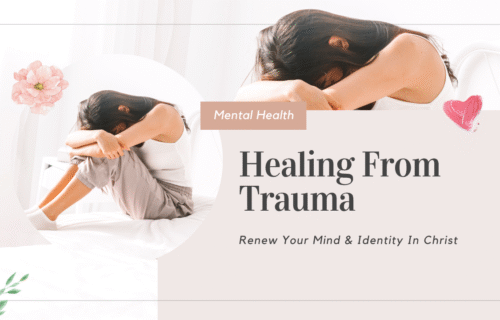
Healing Your Heart: Moving Forward After a Miscarriage
Losing a baby through miscarriage can be a crushing blow to couples who have been eagerly anticipating the arrival of their little one. The physical and emotional strain that comes with such an experience can leave you feeling overwhelmed, helpless, and lost.
But while grieving is necessary after suffering from a miscarriage, it’s important to remember that healing is also possible – and that moving forward doesn’t mean forgetting your precious angel in heaven. In this blog post, we’ll explore some ways you can heal your heart following a miscarriage so you can regain hope for the future.
Introduction
If you’ve recently had a miscarriage, know that you are not alone. It’s estimated that up to 25% of pregnancies end in miscarriage, and yet it is still something that is often not openly talked about. The silence and shame around miscarrying can make the healing process even more difficult.
But healing is possible, and there are things you can do to help yourself through this tough time. Here are some tips for moving forward after a miscarriage:
- Give yourself time to grieve. This is a loss, and it’s okay to mourn. allow yourself to feel whatever emotions come up, and don’t try to bottle them down.
- Talk about it with someone who understands. It can be really helpful to talk to someone who has been through a similar experience. If you don’t have anyone in your life who can relate, there are many online support groups available.
- Seek professional help if you need it. If you’re finding it hard to cope, don’t hesitate to reach out for professional help from a therapist or counselor.
- Take care of yourself physically and emotionally. Be sure to eat well and get enough rest, exercise, and fresh air during this time. Also, be gentle with yourself emotionally; give yourself permission to do things that make you happy and relax you.
- Consider your options for trying again. Depending on the circumstances, you may wish to try for another pregnancy or look at other options for building your family such as adoption or surrogacy.
These tips provide a framework for beginning the healing process after suffering a miscarriage. By taking this time to focus on yourself and your emotional wellbeing, you will be moving forward with strength and resilience in the future.
Definition of Miscarriage
A miscarriage is the loss of a pregnancy during the first 20 weeks. The medical term for a miscarriage is “spontaneous abortion,” but this term is often used to refer to an induced abortion, which is the purposeful termination of a pregnancy.
Miscarriage is relatively common, occurring in about 10-20% of known pregnancies. Most miscarriages happen before the 13th week of pregnancy.
Physical and Emotional Effects of Miscarriage
A miscarriage can have both physical and emotional effects on a woman. The physical effects often include cramping, bleeding, and passing tissue. These symptoms can last for a few hours to a few weeks. The emotional effects of a miscarriage can be just as severe, and can include feelings of sadness, guilt, anxiety, and grief.
Many women also experience feelings of anger and betrayal. It is important to understand that these emotions are normal and that there is no “right” way to feel after a miscarriage. Every woman will grieve in her own way and at her own pace. There is no timeline for grieving, and it is important to allow yourself the time and space to process your emotions. seeking professional help if you find that you are struggling to cope with your loss.
Ways to Cope With Grief and Loss
- Acknowledge Your Grief: It is natural and important to feel sad, angry, or scared after a miscarriage. Give yourself time to process your feelings.
- Seek Support: Whether it’s talking with a friend, family member, or mental health professional, it can be helpful to share your experience with others who understand what you’re going through.
- Take Care of Yourself: Be sure to take care of your physical and emotional needs during this difficult time. Get plenty of rest, eat healthy foods, and avoid alcohol and drugs.
- Find Meaning in Your Experience: Many people find comfort in knowing that their baby was loved and that their loss is not their fault. Others might find strength in knowing that they are not alone—miscarriage is common, affecting up to one in four pregnancies.
- Focus on the Future: While it’s important to mourn your loss, it’s also crucial to focus on the future and make plans for the days ahead. When you’re ready, consider trying again—most women who miscarry go on to have healthy pregnancies.
Seeking Professional Help
If you’ve experienced a miscarriage, it’s natural to want to do everything you can to heal your heart and move forward. While time will eventually heal your wounds, there are some things you can do to help the process along. One of these is seeking professional help.
If you’re struggling to cope with your loss, talking to a therapist or counselor can be incredibly helpful. They can provide support and guidance as you grieve and work through your feelings. If you’re finding it hard to even get out of bed in the morning, they can also offer practical tips for managing depression and anxiety.
Don’t be afraid to reach out for help if you’re feeling lost after a miscarriage. It can make all the difference in getting through this tough time.
Religious & Spiritual Aspects of Grief and Healing
The religious and spiritual aspects of grief and healing are often an important part of the healing process for many people. While everyone grieves differently, there are some common religious and spiritual themes that can emerge during this time.
Many people find comfort in their faith during times of grief and loss. This can be a time to reconnect with God and to find strength in your beliefs. Prayer, meditation, and other spiritual practices can be helpful in finding peace and solace.
For some, the grieving process may also be a time to question your faith. This is normal, and can be a healthy part of the process as you search for answers and meaning. Doubt and questioning can lead to a deeper understanding of your beliefs, and can ultimately make them stronger.
If you are struggling with your faith after a miscarriage, talking to a trusted clergy member or counselor can be helpful. They can offer guidance and support as you navigate this difficult time.
Reaching Out for Support
No one understands what you’re going through like another woman who has been through a miscarriage. Fortunately, there are many support groups designed specifically for women who have suffered a pregnancy loss. These groups can provide much-needed understanding, comfort, and advice during this difficult time.
Your doctor or midwife can likely give you some recommendations for local support groups. You can also search online for “miscarriage support group” + your city name to find something in your area.
If you’re not ready to join a formal support group just yet, that’s OK too. You might find comfort in talking to a close friend or family member who has also been through a miscarriage. Just knowing that someone else understands what you’re going through can be incredibly helpful.
Celebrating the Life of Your Baby
It is common to want to celebrate the life of your baby after a miscarriage. This can be done in many ways including:
• Naming your baby
• Holding a memorial service or funeral
• Writing letters or poems to your baby
• Creating a memory box or album
•Donating to a charities in your baby’s honor
No matter how you choose to celebrate your baby’s life, know that it is okay to grieve and mourn their loss. It is also okay to find joy in celebrating their life.
Looking Forward to the Future
It’s hard to forget the day you found out you were pregnant. The joy and happiness you felt as you told your partner, family, and friends the news. You started making plans for the future and imagining what your life would be like as a parent. But then, something went wrong. You had a miscarriage.
The grief you feel after miscarrying can be overwhelming. You may feel like you’re never going to be able to move on and have a happy life again. But it is possible to heal your heart and move forward after a miscarriage.
Here are some things that may help you on your journey:
•Talk about your feelings with someone who understands what you’re going through. expresses them openly can help you start to feel better. A therapist or counselor can provide professional support and guidance. Friends and family members can also offer comfort and understanding. Just knowing that someone else cares about what you’re feeling can make a big difference.
•Write down your thoughts and feelings in a journal. This can be a good way to get all of your emotions out without having to talk about them with anyone else if you’re not ready yet.
•Find an activity that brings you joy and stick with it, whether it’s hiking, painting, biking, yoga, etc. Doing something that makes you happy will help raise your mood and give you something positive to focus on .
•Surround yourself with positive people who can lift your spirits.
These are only some of the ways to help you heal and move forward after a miscarriage. Everyone is different and will have their own unique way of dealing with their grief. What’s important is that you take the time to take care of yourself. Allow yourself to feel your emotions without judgment, and know that with time you will begin to heal and look forward to the future again.
Conclusion
Miscarriages can be a difficult experience and it can take time to heal your heart. Although there is no one-size-fits-all solution, we hope that the strategies outlined in this article have provided some helpful guidance on how to move forward after a miscarriage.
From finding supportive people to connecting with yourself through journaling and meditation, there are plenty of ways you can foster healing for yourself during this difficult time. As you travel the path towards acceptance and recovery, don’t forget to practice self love, show kindness to others and surround yourself with positivity.





Add A Comment